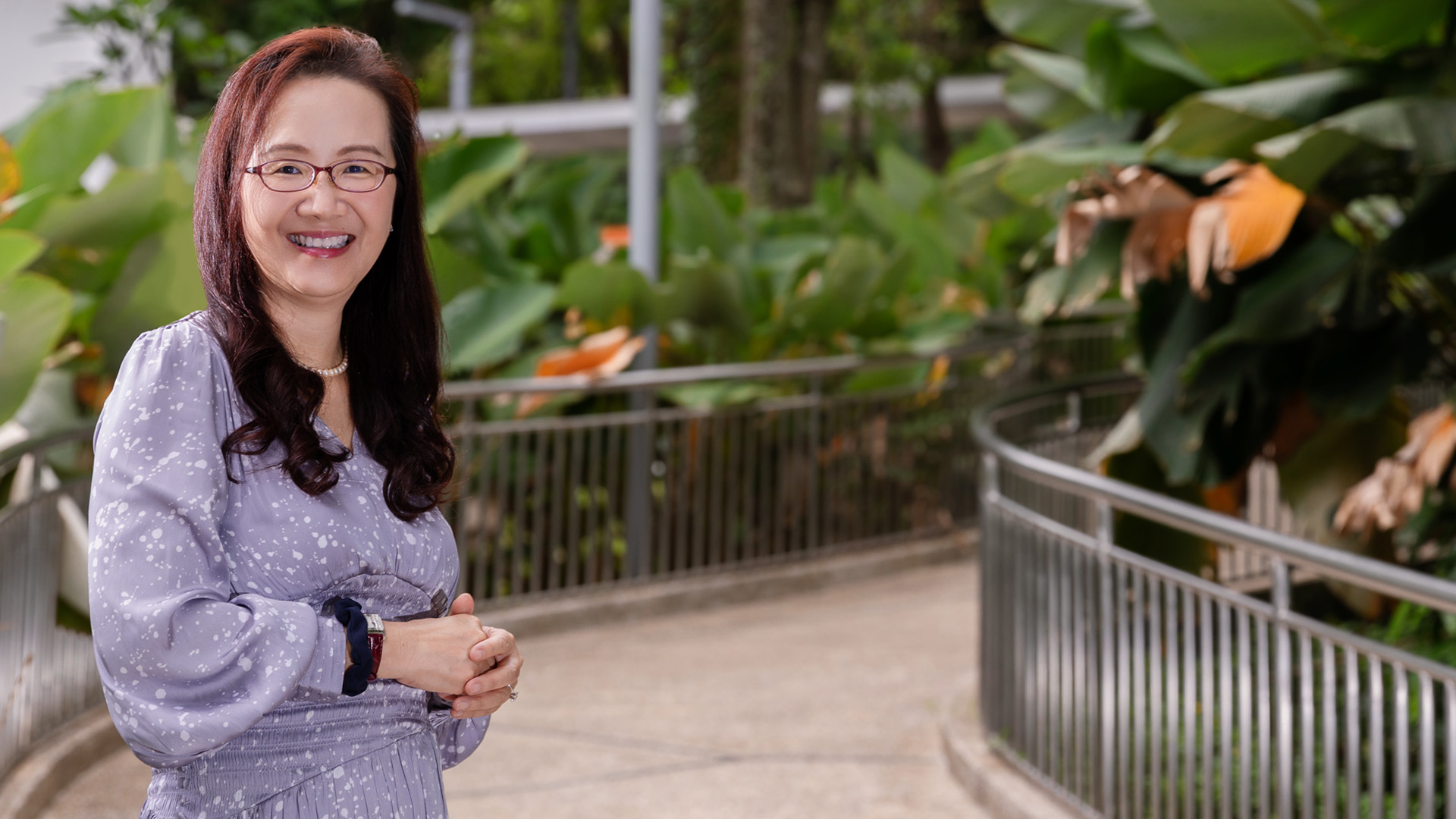NUS collaborates in 5G Academy to develop Singapore’s 5G talent pipeline
NUS collaborates in 5G Academy to develop Singapore’s 5G talent pipeline
 The 5G Academy has brought together all twelve local Institutions of Higher Learning and leading industry players such as Cisco Systems, IBM and Micron to develop and steer its initiatives.
The 5G Academy has brought together all twelve local Institutions of Higher Learning and leading industry players such as Cisco Systems, IBM and Micron to develop and steer its initiatives.
More than 3,000 Singaporeans and Singapore Permanent Residents have been trained in 5G and related technologies over the last year, as part of plans by the Infocomm Media Development Authority (IMDA) to roll out 5G coverage nationwide by 2025, according to statistics provided by the Singapore 5G & Telecoms Academy (5G Academy).
The 5G Academy, which was established under the auspices of the IMDA on 1 November 2020, was created to determine the needs of industries and availability of talent, as well as develop a pool of 5G-ready professionals.
The National University of Singapore (NUS) and Singapore Polytechnic (SP) were appointed by IMDA to set up and manage the 5G Academy, which today lists on its website more than 700 short courses and academic programmes to develop 5G-ready talents. Offered by various institutions across Singapore, the courses and programmes are mapped to a framework that organisations and individuals can use as a reference in their upskilling journey.
“Singapore has always held that talent is its most important competitive advantage. Being 5G-ready represents an important next step for Singapore as it strives towards being a leading SMART nation, driven by the desire to create advanced digital solutions that can transform our businesses, economy and society,” said Prof Susanna Leong, Vice Provost (Masters’ Programmes and Lifelong Education) and Dean, School of Continuing and Lifelong Education (SCALE), NUS.
5G, the fifth-generation mobile network, is a new global wireless standard. It will offer higher speeds, lower latency and greater capacity over older 3G and 4G technologies, and is set to enable vastly improved connectivity and user experiences.

Prof Susanna Leong, NUS Vice Provost (Masters’ Programmes and Lifelong Education) and Dean of SCALE, expressed appreciation for the opportunity – made possible by the IMDA, for NUS to collaborate with the diverse range of 5G stakeholders in Singapore.
“The University’s role in the 5G Academy is to act as an enabler, working with all relevant parties to strengthen the links between education and training, as well as the talent needs of employers and enterprises so as to bring about transformational changes as a result of the deployment of 5G technology in our industries.”
Known as the 5G Programme Office when it was first set up, the 5G Academy has brought together all twelve local Institutions of Higher Learning (IHLs) and leading industry players such as Cisco Systems, IBM and Micron to develop and steer its initiatives.
Manpower development in the area of 5G and related technologies is essential because 5G technologies are so different from the current setup. Besides technically skilled 5G specialists, even individuals who hold supporting roles in the industry such as product specialists and project managers, as well as users, would require some form of new knowledge and skills to harness and utilise 5G products and services.
Farook Mathersha Maraicar, a solution architect from SingTel, said a short course offered by the 5G Academy gave him some hands-on experience with a 5G tool, Microsoft’s Azure Edge Zone, and enabled him to provide more effective solutions to the business units he supports.
“The course enhanced my understanding of design thinking and how this concept can be applied to 5G technology to bring about new solutions,” he shares. “I have learnt how to deliver low-latency Internet of Things (IoT) enterprise solutions like automation, real-time processing of telemetry data and analytics for business needs using the Azure private multi-access edge compute.”
The 5G Academy has in its inaugural year racked up a notable list of achievements. Six months after its implementation plan was approved by the IMDA, the 5G Academy had set up various Committees, such as the Curriculum Advisory Committee and Workforce Development Committee, to drive its plans and development efforts. By end 2021, the 5G Academy registered 3,239 headcounts trained for the year.
The 5G Academy was also involved in the Workforce Transformation Committees established by local telecommunication companies with participation from relevant government agencies, such as Digital Industry Singapore, IMDA, SkillsFuture Singapore and Workforce Singapore, to implement training plans and tap on SSG-funded courses, career conversion programmes and company-led training programmes.
With the IMDA’s aim of extending 5G coverage across 50 per cent of Singapore by the end of 2022, the 5G Academy will be ramping up its efforts to further encourage upskilling and reskilling, in collaboration with its partners.
It plans to embark on a host of new initiatives, including partnerships with 5G test beds; increased engagement with 5G stakeholders such as training providers, employers and small-and-medium-sized enterprises; programmes to help enterprises kickstart and ramp up 5G talent development; and the launch of a 5G Readiness Index to help enterprises better gauge awareness of and willingness to adopt 5G. It will also seek to provide market insights and intelligence to stakeholders to advance the development of skills frameworks and training courses and programmes.
By NUS School of Continuing and Lifelong Education

